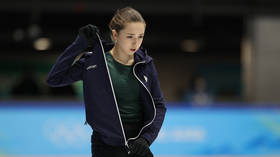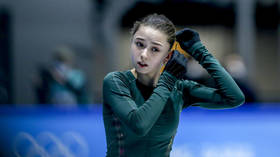Anti-doping officials explain mystery Valieva test delay

Information about the positive doping test result for Russian figure skater Kamila Valieva was delayed because of issues caused by Covid-19 at a Stockholm laboratory, according to an explanation provided to the Russian Anti-Doping Agency (RUSADA).
It was announced on Friday that Valieva had tested positive for a banned heart medicine which was detected in a sample taken on December 25 at the Russian national championships in St. Petersburg.
The statement from the International Testing Agency (ITA) on Valieva’s positive test came after the 15-year-old had already competed at the Beijing Winter Games, helping the Russian Olympic Committee (ROC) to the gold medal in the figure skating team event.
Many, including ROC president Stanislav Pozdnyakov, have questioned why the positive result took so long to be reported if the sample was taken more than six weeks ago.
A statement from RUSADA addressed that issue on Friday, citing information from the laboratory in the Swedish capital which handled Valieva’s sample, and which is accredited by the World Anti-Doping Agency (WADA).
“Information about the adverse result of the analysis of the athlete’s sample was received by RUSADA on February 7, 2022,” the Russian organization said.
“According to the data sent by the laboratory [in Stockholm] to RUSADA, the reason for the delays in testing and reporting by the laboratory was another wave of Covid-19, an increase in incidence [of illness] among laboratory staff, and quarantine rules.”
RUSADA confirmed that it had provisionally suspended Valieva upon being notified of the positive test, but that an independent Disciplinary Anti-Doping Committee had reversed that decision upon appeal from Valieva – freeing her to train and potentially compete again in Beijing.
Despite that decision, Valieva still faces an anxious legal battle to see if she can line up in the ladies’ singles event in Beijing, which gets underway on February 15.
The International Olympic Committee (IOC), International Skating Union (ISU), and WADA have all stated their intention to contest the decision to lift Valieva’s suspension, in a case which will be heard by the Court of Arbitration for Sport (CAS).













